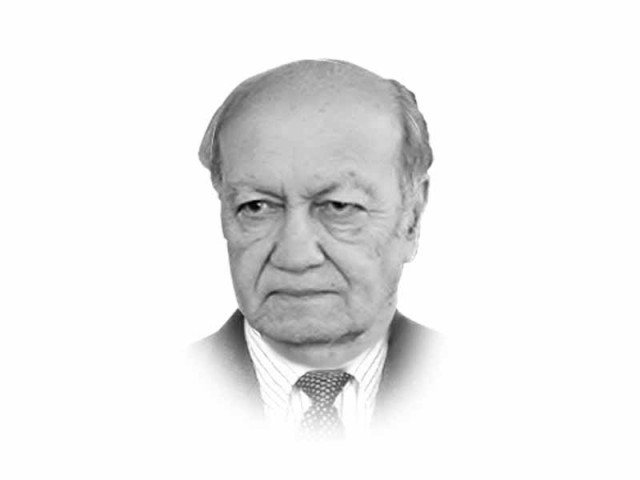Pakistan’s leadership deficit
Dynastic politics, based on personality cults, must yield to meritocracy and equality of opportunity.

No doubt, it has been part of the South Asian ethos to show reverence to certain political families. Nehru in India, Bhutto in Pakistan and Bandranaike in Sri Lanka were great leaders who rendered enormous sacrifices for their countries, and their sons and daughters had to be politically rewarded. Dynastic politics in Pakistan also served a useful purpose of holding the party together during periods of high stress, when unscrupulous military rulers were ruthlessly trying to eliminate them. But with passage of time and evolution of democratic institutions, exclusive reliance on hereditary politics and arbitrary choice of political leaders has become a self-defeating and unsustainable proposition. This approach only further entrenches the tribal and feudal mindset where promotion of family interest and personal loyalty takes precedence over national considerations.
In the contemporary world, any system where political leaders are not selected through a genuine, transparent and competitive process is bound to fail sooner rather than later. If political parties fail to practise democracy and fairness within their parties, how are they expected to conduct affairs of the state in a principled manner?
Moreover, family-based politics breeds mediocrity and the party eventually suffers from rapid erosion of public support. This is what we witnessed after the judicial murder of ZAB and the tragic assassination of Benazir Bhutto, when the PPP went on a downhill curve and has been reduced from a national to a rural party of Sindh.
Now, if we could just make the parties themselves internally democratic (as opposed to essentially feudal or dynastic structures), this country’s democracy would be making real progress. If the parties change their culture and start choosing their leaders on the basis of merit and policy platforms rather than parentage and patronage, it would be a quantum leap for democracy.
For that, fundamental reforms would be necessary to transform the philosophy and practices of political parties. Dynastic politics, based on personality cults, must yield to meritocracy and equality of opportunity if political parties are to survive. In the 20th century, countries that were coming out from colonial rule required charismatic leadership that could play on the emotions of the masses and galvanise them to fight for their independence. In the present day, Pakistan needs leaders who play less on emotion and focus more on substance and delivery.
It is on these criteria that people will be judging Prime Minister Nawaz Sharif. The question is, has he learnt from his years in political wilderness? His greatest personal challenge will be to prove this. He should remember he is now the prime minister of the whole country. His choice of cabinet members and close advisers has to be broad-based and not rely primarily on his inner circle of close relatives and confidantes. He should feel confident enough to select a strong and competent team of ministers. If past and current practices are an indication, our political leadership has always marginalised able politicians.
As regards Imran Khan, he has to be given credit for developing a party on more modern and altruistic lines. He also established democratic traditions by holding genuine party elections and changing the political dynamic of Pakistan. It is not his party structure, but his autocratic style and superficial understanding of national problems that is standing in his way. Does Imran Khan understand that appeasement of militants will get us nowhere? That is especially true in Pakistan today where the weaknesses of the state are reinforcing themselves (militancy reinforces weaknesses in the economy, the weak economy reinforces militancy, they both erode our education system, which exacerbates both our poverty and militancy, and so on). He could have been an agent of change, but as matters stand, he raises too many questions: is he too conservative for urban youth; too liberal for conservatives and fundamentalists; a revolutionary or simply a reformer, or merely a rabble-rouser; not politically smart enough and too obstinate to comprehend the complexities of the challenges facing Pakistan? The most disturbing aspect has been his naivety to grasp the complexities of major internal threats that the country is facing. Can he be considered a viable candidate to lead Pakistan into a new century amidst such ambiguities?
The dithering and the lack of resolve of the current political leadership has strengthened the hands of militants and given a free reign to radical forces. Similarly, on the economic front, the inability to enact fundamental reforms, target the rich and widen the tax base have placed the economy on the perpetual mercy of foreign assistance and has compromised our economic sovereignty.
The irony is that it was Nawaz Sharif who had suggested that all stakeholders in Pakistan work to achieve a consensus among all major institutions of government on a programme of action to meet the country’s challenges. The proposal was driven by three principal concerns: that the economy is in a shambles; that militancy was (and is) completely destabilising the country and putting the security of the state at risk; and, that key state institutions had begun stepping into one another’s jurisdictions, weakening the overall performance of the government and creating counterproductive conflicts when the government desperately needed to come together to address the many threats faced by the state.
If we look at developing countries that have transformed their destiny, we see that their leaderships have been uncompromising on efficiency and competence. If Pakistan is to have a future, its leaders will have to do likewise.
Published in The Express Tribune, January 1st, 2014.
Like Opinion & Editorial on Facebook, follow @ETOpEd on Twitter to receive all updates on all our daily pieces.















COMMENTS
Comments are moderated and generally will be posted if they are on-topic and not abusive.
For more information, please see our Comments FAQ